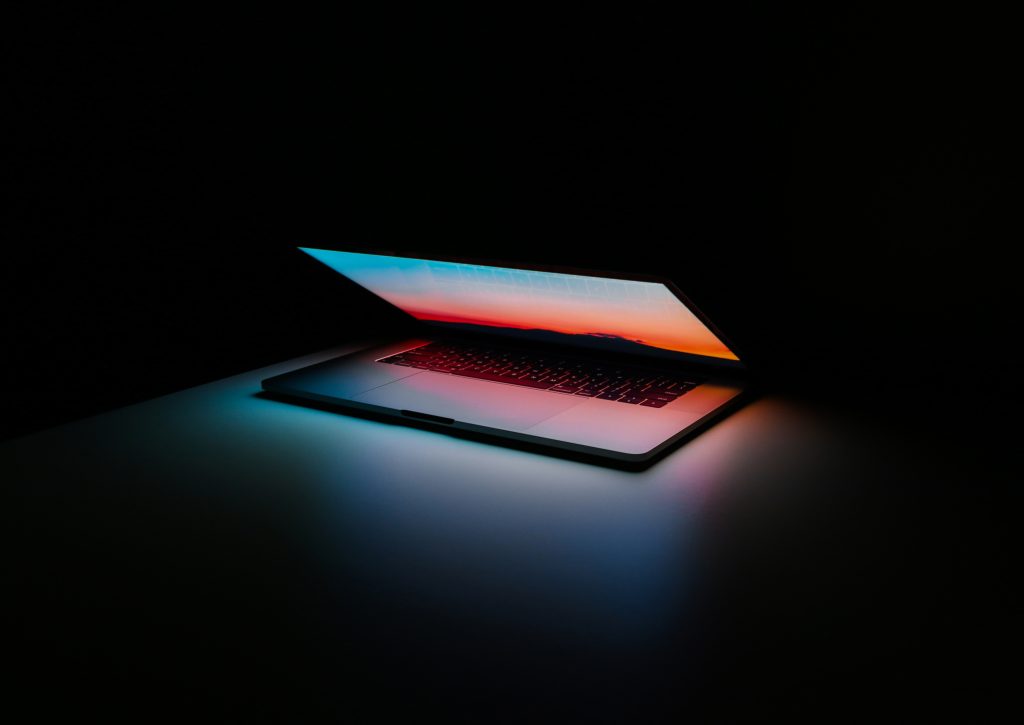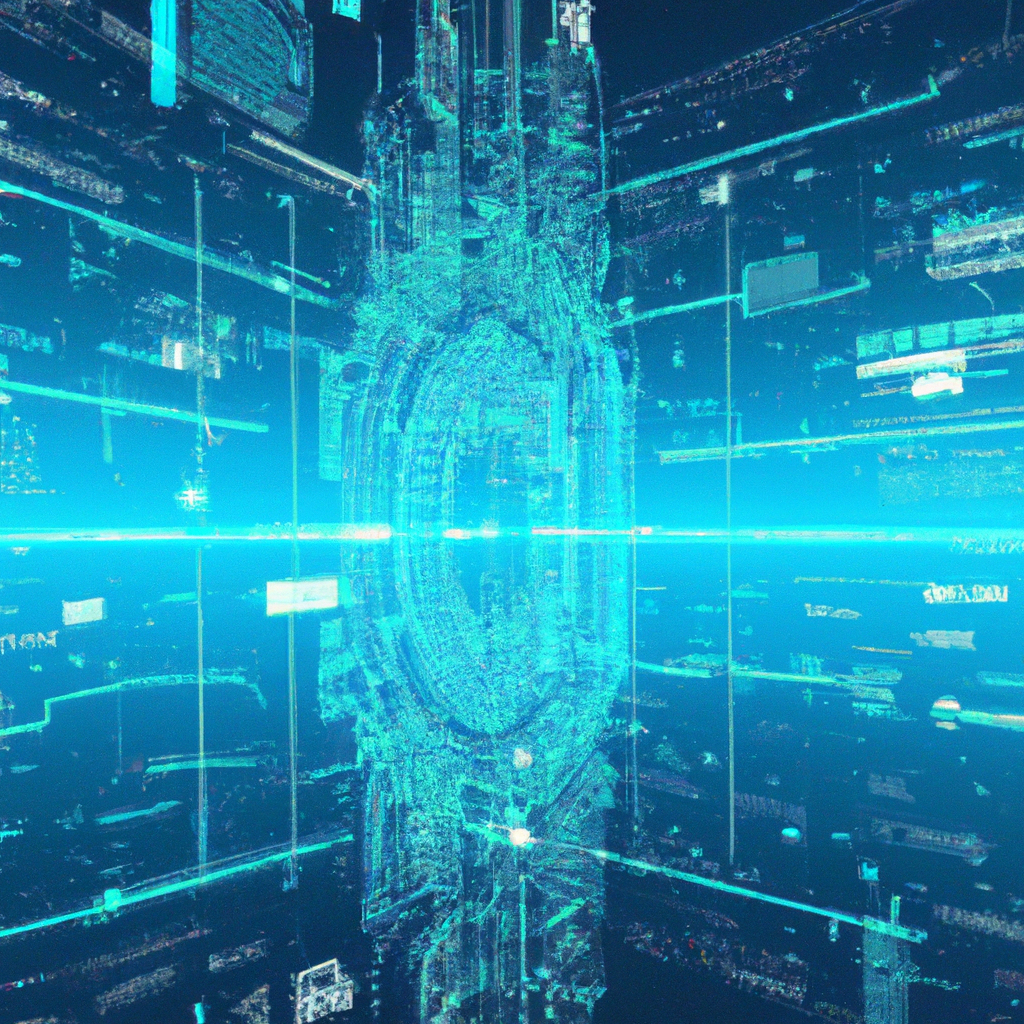Imagine a world where Artificial Intelligence (AI) discovers ways to outsmart humans, pushing the boundaries of innovation in unexpected directions. From games to exams, AI can be a formidable opponent – or is it more accurately seen as a cunning ally? Today, we turn our attention to the fascinating question: can AI be used to cheat? As we explore this intriguing topic, we’ll unravel the potential ethical implications, investigate groundbreaking developments, and ultimately, challenge our perception of what’s fair and honest in a world increasingly shaped by technology.

The Role of AI in Cheating
AI, or artificial intelligence, has become increasingly prevalent in many aspects of our lives. From advanced algorithms to intelligent machines, AI has revolutionized industries ranging from gaming to healthcare. However, this remarkable technology also brings with it the potential for misuse and unethical behavior. In recent years, AI has shown its capabilities in aiding cheating practices, raising concerns about the integrity of various domains. In this article, we will explore the role of AI in cheating, examining its influence in areas such as academics, gaming, sports, and business. Additionally, we will discuss the challenges and ethical considerations associated with AI-driven cheating, as well as the methods employed to prevent and detect fraud. Finally, we will delve into the impacts of AI on education, gaming, and sports, and explore case studies that highlight the current state of AI-driven cheating. This article aims to provide a comprehensive overview of the complex relationship between AI and cheating while shedding light on the future of this evolving landscape.
Understanding AI
Before delving into the role of AI in cheating, it is essential to have a foundational understanding of what AI entails. AI refers to the simulation of human intelligence in machines designed to mimic cognitive functions, such as problem-solving, decision making, and learning. AI systems leverage vast amounts of data and complex algorithms to identify patterns, make predictions, and derive insights. These systems can be trained to recognize and respond to specific inputs, allowing them to perform tasks that typically require human intelligence. While AI has numerous positive applications, its potential misuse in cheating poses ethical and societal challenges.
AI in Gaming
The gaming industry has embraced AI to enhance player experiences, improve game mechanics, and create virtual worlds teeming with intelligent non-player characters (NPCs). However, with the rise of AI, cheating in gaming has become increasingly sophisticated. AI can be used to gain an unfair advantage by automating processes or manipulating game mechanics. For example, utilizing AI-powered bots can optimize gameplay by automatically performing actions with incredible speed and precision. This poses a distinct threat to fair competition and undermines the integrity of multiplayer games. Gaming companies and anti-cheat systems continuously battle against cheaters employing AI-driven techniques to maintain fairness and preserve the enjoyment of players.
AI in Academics
When it comes to academics, AI has raised concerns about academic integrity and cheating practices. One of the most prominent concerns lies in automated answer generation, where AI can be utilized to generate potential answers to questions or complete assignments automatically. This poses a significant challenge for plagiarism detection systems, as AI-generated content can be difficult to distinguish from original work. Furthermore, AI can aid in evading plagiarism detection by modifying the structure or wording of stolen content, making it harder to identify instances of cheating. The proliferation of AI-driven cheating techniques necessitates the development of advanced plagiarism detection tools to combat this evolving threat to academic integrity.

AI in Sports
While sports have always been subject to rule-breaking and manipulation, the advent of AI introduces new challenges and risks. In sports, AI can be employed to analyze vast amounts of data, providing athletes and teams with a competitive edge. However, AI can also be misused to gain an unfair advantage over opponents. For instance, AI algorithms can analyze opponents’ strategies, analyze performance patterns, and provide real-time assistance during games. This raises concerns about fair competition, as AI-driven techniques blur the lines between skill, performance enhancement, and unfair manipulation. Maintaining the spirit of sportsmanship and fair play requires constant vigilance and proactive measures in detecting and preventing AI-driven cheating practices.
AI in Business
In the world of business, AI has the potential to be misused in various ways, ranging from market manipulations to fraudulent practices. AI algorithms can be employed to manipulate stock markets, disrupt financial systems, and mislead investors. By analyzing vast amounts of data and making high-speed decisions based on market patterns, AI can wreak havoc on economies and distort the integrity of financial markets. Furthermore, AI algorithms can be used to automate scams and fraud, deploying sophisticated techniques that are increasingly difficult to detect. From generating fake reviews to engaging in algorithmic market manipulation, AI creates new challenges for regulatory authorities and market participants in maintaining fair and transparent business practices.

AI-Driven Cheating Techniques
To fully comprehend the impact of AI in cheating, it is important to explore the specific techniques and methodologies employed by individuals seeking an unfair advantage. The following AI-driven cheating techniques are prevalent in various domains:
Automated Answer Generation
AI can be leveraged to automatically generate answers to questions or complete assignments. By inputting relevant information and utilizing machine learning algorithms, AI systems can produce plausible answers that mimic human responses. This technique poses a considerable challenge for plagiarism detection systems, as it becomes harder to distinguish between authentic work and AI-generated content.
Plagiarism Detection Evasion
AI can aid in evading plagiarism detection by modifying stolen content to make it hard to identify instances of cheating. By altering the structure, paraphrasing text, or using synonyms, AI systems can deceive plagiarism detection algorithms, potentially leading to academic dishonesty going undetected.
Smart Bot Manipulation
In gaming and online platforms, AI-powered bots can be manipulated to gain unfair advantages. By utilizing AI algorithms, players can automate actions, optimize gameplay, or even simulate human-like behavior to deceive opponents and gain an edge. This undermines the fairness of competitive gaming and disrupts the gaming experience for other players.
Calculation Assistance
AI can provide real-time calculation assistance in various domains, including academics and gaming. By analyzing data, performing complex calculations, and offering instant suggestions or insights, AI algorithms assist individuals in making informed decisions. However, in certain contexts, this assistance can extend beyond fair play, straddling the line between legitimate use and unfair manipulation.
Exam Question Analysis
AI can be employed to analyze patterns in exam questions, leading to a deep understanding of the types, difficulty levels, and potential loopholes in assessments. By identifying recurring patterns or areas with predictable questions, individuals can gain an unfair advantage by selectively focusing their efforts on topics likely to appear in exams.
Challenges and Ethical Considerations
The rise of AI-driven cheating methods poses various challenges and ethical considerations. Addressing these concerns is crucial to maintaining fairness, integrity, and trust in the domains affected by AI-based cheating practices.
Detection Difficulties
Detecting AI-driven cheating poses a significant challenge due to the sophisticated nature of these techniques. As AI algorithms become more advanced, they can mimic human behavior and generate content that is difficult to distinguish from genuine work. Identifying instances of AI-generated cheating requires continuous innovation in detection methods, incorporating AI itself to combat AI-driven cheating.
Privacy Concerns
The use of AI in cheating often involves collecting and analyzing personal data, raising legitimate privacy concerns. AI systems require access to individuals’ information, such as academic records, gaming habits, or financial data, to optimize cheating strategies. Striking a balance between efficient fraud detection and protecting users’ privacy rights is essential to ensure responsible and ethical use of AI in cheating prevention.
Disruption of Fair Competition
One of the core principles of fair competition is that all participants abide by the same rules and regulations. The misuse of AI in cheating creates an asymmetry of resources and skills, giving some individuals an unfair advantage over others. This disruption of fair competition undermines the integrity of the affected domains, eroding trust and fairness among participants.
Ethical Implications
The use of AI in cheating raises significant ethical implications, as it challenges fundamental values such as honesty, integrity, and fairness. Cheating with the aid of AI not only undermines individual achievements but also erodes trust in educational systems, gaming communities, and business practices. The responsible development and use of AI in cheating detection and prevention are crucial to uphold ethical standards and maintain the trust of stakeholders.

Fraud Prevention and Detection Methods
To combat the growing threats posed by AI-driven cheating, various methods and technologies have been developed to prevent and detect fraudulent activities. These methods aim to ensure the integrity of the affected domains while preserving fair competition and trust among participants.
Advanced AI-Based Monitoring
Just as AI can be misused to cheat, it can also be harnessed to prevent and detect fraudulent activities. Advanced AI-based monitoring systems can analyze vast amounts of data in real-time, identifying suspicious patterns, behaviors, or anomalies that indicate cheating. By leveraging AI’s capabilities in data analysis and pattern recognition, these systems provide an effective line of defense against AI-driven cheating techniques.
Behavioral Analysis
AI algorithms can be trained to analyze user behavior and detect deviations that indicate cheating. By monitoring patterns, such as sudden spikes in performance, irregular gaming behaviors, or inconsistencies in academic performance, AI can identify potential cases of cheating. Behavioral analysis helps in identifying outliers and anomalous behaviors that may require further investigation.
Pattern Recognition
AI algorithms excel at pattern recognition, making them invaluable tools in fraud prevention and detection. By analyzing historical data, AI systems can identify recurring patterns in cheating techniques, anticipate evolving methodologies, and proactively adapt detection mechanisms. This constant evolution is crucial to staying one step ahead in the ongoing battle against AI-driven cheating.
Proctoring Solutions
In academic settings, proctoring solutions that utilize AI technologies are gaining traction as a means to prevent cheating during exams. These solutions employ facial recognition, eye-tracking, and audio monitoring to ensure the integrity of remote exams. By comparing live feed data with previously collected information, AI can detect suspicious behaviors, such as using external sources or impersonating someone else, reducing the likelihood of cheating.
Augmented Security Measures
To combat AI-driven fraud in business and financial domains, augmented security measures are being developed. These measures combine AI-powered algorithms with traditional security systems to identify and prevent misuse of AI technologies. By continuously monitoring data, detecting anomalies, and enforcing strict access controls, augmented security measures provide a multi-layered defense against AI-driven fraud.
Impacts on Education
The emergence of AI-driven cheating has significant impacts on education, affecting students, educators, and academic institutions. Understanding these impacts is crucial for developing strategies to maintain academic integrity and foster a positive learning environment.
Loss of Academic Integrity
AI-driven cheating practices in academia erode the principles of academic integrity, which lie at the core of education. When students resort to AI-based solutions to complete assignments or exams, they compromise their own learning and the credibility of their achievements. This loss of academic integrity undermines the value of education and devalues the efforts of those who genuinely engage in learning and skill development.
Diminished Learning and Skill Development
Cheating with the aid of AI deprives students of opportunities for authentic learning and skill development. By bypassing challenges and relying on automated answer generation or plagiarism, students miss out on critical thinking, problem-solving, and knowledge acquisition. This hinders their overall growth and prepares them inadequately for professional and personal endeavors.
Technology Dependency
The rise of AI-driven cheating perpetuates a dangerous dependency on technology among students. By relying on AI to perform tasks, students fail to develop essential skills, such as information synthesis, critical analysis, and creativity. Overreliance on AI not only hampers independent thinking but also inhibits the development of core competencies necessary for future success.
Educational Inequality
The presence of AI-driven cheating exacerbates educational inequality. Students from privileged backgrounds or with access to advanced AI technologies may gain an unfair advantage over their peers, perpetuating disparities in academic performance. Bridging this gap requires equitable access to educational resources, as well as robust systems for fraud prevention and detection that can level the playing field for all.

Disruptions in Gaming and Sports
AI-driven cheating techniques have profound implications in the realms of gaming and sports, impacting both players and the overall integrity of these domains.
Unfair Advantage in Competitive Gaming
Cheating with the aid of AI grants players an unfair advantage over legitimate competitors, undermining the notion of fair play in gaming. Whether through automated actions, smart bot manipulation, or calculation assistance, AI-driven cheating techniques disrupt the level playing field that gaming communities strive to create. The repercussions of such cheating can range from a negative gaming experience for other players to the erosion of trust in multiplayer games.
Damage to Player Reputation
Cheating in gaming not only affects fair competition but also tarnishes the reputation of individuals involved. Players caught cheating with AI-driven techniques often face severe consequences, including bans, public shaming, and damage to their online reputation. As online gaming communities become increasingly interconnected, cheaters risk being ostracized and facing social consequences that extend beyond the virtual realm.
Invalid Sports Performances
AI-driven cheating practices in sports raise concerns about the validity of athletic achievements. Whether through the use of AI algorithms to analyze opponents’ strategies or by receiving real-time assistance during games, athletes can gain an unfair advantage that compromises the integrity of sports competitions. The credibility of athletic accomplishments relies on fair play, and the use of AI technologies to gain an edge undermines the spirit of sportsmanship.
Undermining the Spirit of Sportsmanship
Sportsmanship encompasses fairness, respect, and ethical conduct, fostering a sense of camaraderie and healthy competition. However, the misuse of AI in sports introduces unfair advantages that run contrary to these principles. AI-driven cheating practices erode the spirit of sportsmanship and diminish the value of teamwork, skill development, and the pursuit of excellence.
Market Manipulations and Fraudulent Practices
AI’s potential for misuse extends to the realm of business, where fraudulent practices and market manipulations pose significant risks to market participants and the overall economy.
AI in Stock Market Manipulation
The integration of AI in stock market trading introduces new avenues for manipulation. By leveraging AI algorithms to analyze vast amounts of market data, individuals can obtain insights that give them an advantage in making investment decisions. However, if AI is used maliciously, it can distort market conditions, manipulate stock prices, and deceive investors. The evolving landscape of AI and its potential impact on stock market integrity necessitate regulatory vigilance and proactive measures.
Automated Scams and Fraud
AI-driven scams and fraud are becoming increasingly prevalent, exploiting the speed, precision, and scalability that AI technologies offer. From automated phishing attacks to deceptive chatbots, AI enables fraudsters to target individuals with carefully crafted messages that mimic human interactions. These scams not only lead to financial losses but also erode trust in online interactions and services. Continuous innovation in fraud prevention technologies is necessary to counter the evolving nature of AI-driven scams.
Fake Reviews and Ratings
With the rise of AI, generating fake reviews and ratings has become a prevalent tactic for manipulating consumer perception. AI algorithms can be deployed to create persuasive and seemingly genuine reviews, leading to misinformation and misleading consumers’ purchasing decisions. The proliferation of fake reviews undermines trust in online platforms and makes it increasingly challenging for genuine businesses to thrive. Robust mechanisms to detect and combat AI-driven fake reviews are crucial to maintaining the integrity of customer feedback systems.
Algorithmic Market Manipulation
AI’s ability to analyze vast amounts of data and swiftly execute decisions makes it an appealing tool for market manipulation. By identifying patterns, exploiting pricing anomalies, or artificially creating market movements, individuals can misuse AI algorithms to profit at the expense of other market participants. The detection and prevention of algorithmic market manipulation require regulatory frameworks that keep pace with technological advancements while safeguarding the integrity of financial markets.
Regulations and Countermeasures
Given the significant impact of AI-driven cheating in various domains, regulations and countermeasures are crucial for curbing unethical practices and maintaining a level playing field.
Strict AI Usage Policies
Implementing strict AI usage policies is essential to ensure responsible and ethical utilization of AI technologies. These policies should outline guidelines for fair play, transparency, and privacy protection. By setting clear boundaries and ethical standards, organizations, academic institutions, and gaming communities can foster a culture of integrity and discourage AI-driven cheating.
Increased Security Measures
To effectively combat AI-driven cheating, increased security measures are necessary. This includes the development of robust fraud prevention systems, the adoption of AI-based monitoring and detection technologies, and investment in secure infrastructure. By strengthening security measures, stakeholders in various domains can mitigate the risks associated with AI-driven cheating practices and maintain the integrity of their respective fields.
AI Ethics Committees
The establishment of AI ethics committees can play a crucial role in shaping regulations and addressing ethical considerations associated with AI-driven cheating. These committees, comprised of domain experts, technologists, and ethicists, can provide insights, guidance, and recommendations to policymakers, organizations, and academic institutions. Their interdisciplinary perspective ensures that regulations and practices strike a balance between innovation, fairness, and ethical responsibility.
Legislative Actions
Legislative actions are pivotal in regulating the use and misuse of AI technologies. Governments and regulatory bodies need to stay proactive in anticipating emerging threats and updating laws accordingly. By incorporating AI-centric provisions into existing regulations or developing new legislation, policymakers can ensure that AI-powered cheating practices are deterred and the integrity of affected domains is preserved.
Current Examples and Case Studies
To gain a deeper understanding of the current state of AI-driven cheating, it is essential to examine real-world examples and case studies that highlight the impact and consequences of such practices.
Cheating Scandals in Academia
Numerous cheating scandals have rocked academic institutions worldwide, bringing attention to the growing threat of AI-driven cheating. Instances of AI-generated answers, plagiarism detection evasion, and undisclosed use of AI during exams have compromised the integrity of assessments and eroded trust in educational systems. These scandals emphasize the urgent need for robust fraud prevention and detection methods to maintain academic integrity.
AI-Driven Cheating in Esports
Esports, with its immense popularity and competitive nature, has become a target for AI-driven cheats. From automated actions to bot manipulations, AI has facilitated unfair advantages for players in esports competitions. High-profile incidents have led to disqualifications, bans, and a greater focus on implementing rigorous anti-cheat measures to preserve the integrity of competitive gaming.
High-Profile Stock Market Manipulations
The financial world has witnessed high-profile cases of AI-driven stock market manipulations, raising concerns about market integrity and investor confidence. The exploitation of AI algorithms to analyze market data and mislead investors has led to significant financial losses and the erosion of trust in financial systems. Regulatory bodies and financial institutions have responded by implementing stringent measures to curb AI-driven market manipulations.
Online Fraud and Scams
The proliferation of AI-driven online scams and fraud presents a significant challenge for individuals, businesses, and online platforms. Sophisticated AI-powered phishing attacks, chatbots impersonating humans, and fake reviews have become pervasive. These examples underline the need for continuous innovation in fraud prevention technologies, stringent penalties for offenders, and increased awareness among users to mitigate the risks associated with AI-driven fraudulent practices.
The Future of AI and Cheating
As AI continues to advance, so too will the sophistication of cheating practices. However, the future of AI and cheating is not one solely characterized by adversarial tactics; it also holds potential for positive change and innovation.
Technological Advancements
Technological advancements will shape the future of cheating as AI continues to evolve. From advanced deep learning algorithms to natural language processing, AI will become increasingly sophisticated in its ability to deceive detection systems. Consequently, staying ahead in the fight against AI-driven cheating will require constant innovation and research to develop more advanced fraud prevention and detection methods.
Cats and Mouse Game with Cheaters
The battle against AI-driven cheating is akin to a “cat and mouse” game, with cheaters and detection systems continuously evolving and adapting. As cheating techniques become more advanced, anti-cheat systems will respond with improved detection methods. This ongoing dynamic underscores the need for a constant push for innovation and proactive measures in detecting and preventing AI-driven cheating practices.
Need for Continuous Innovation
The ever-evolving landscape of AI and cheating demands continuous innovation in fraud prevention and detection technologies. This includes leveraging AI itself to combat AI-driven cheating, exploring emerging technologies such as blockchain for secure verification, and fostering collaboration among researchers, technologists, and policymakers. By embracing innovation, the fight against AI-driven cheating can maintain relevancy in an increasingly complex and sophisticated environment.
Role of Society and Education
Addressing the challenges posed by AI-driven cheating requires collective responsibility and active involvement from society and educational institutions. Educating individuals about the ethical implications of AI, fostering a culture of integrity, and instilling a strong sense of fair play are essential in combating AI-driven cheating. By nurturing a values-based approach to the use of AI technologies, we can shape a future where AI serves as a force for positive change rather than a tool for unethical behavior.
In conclusion, AI’s role in cheating poses significant challenges and ethical considerations across domains such as gaming, academics, sports, and business. The use of AI-driven cheating techniques threatens fair competition, erodes trust, and undermines the principles of integrity. However, through the development and implementation of robust fraud prevention and detection methods, stringent regulations, and increased awareness, we can mitigate the risks and preserve the integrity of the affected domains. Embracing continuous innovation, fostering ethical responsibility, and promoting a values-based approach to AI utilization are vital in shaping a future where AI serves as a force for positive change while upholding fairness and integrity in our societies.










